Why Can’t You Shoot Steel-Cased Ammo at a Range: 2 Bullet Cores Compared
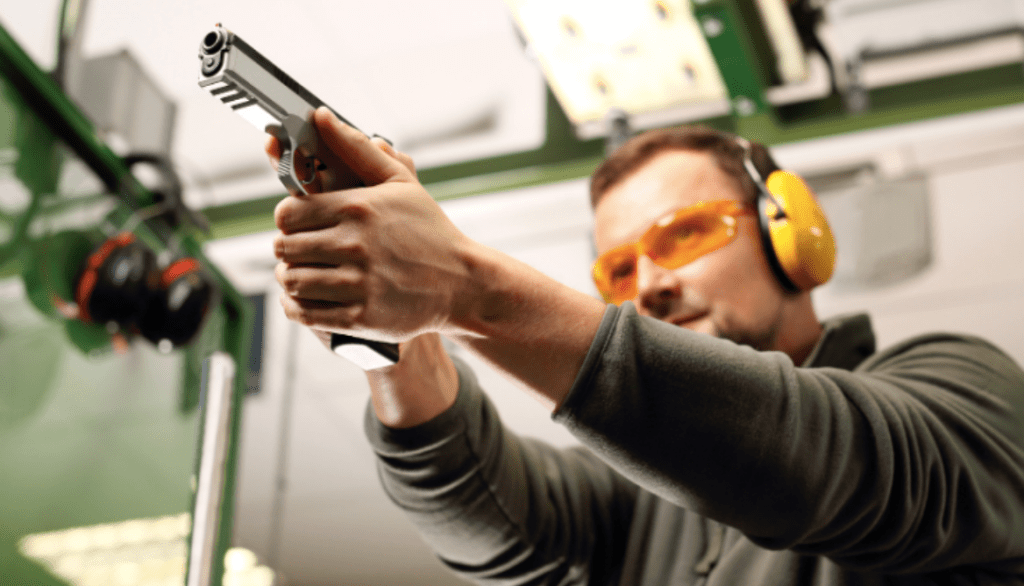
If you’re an avid shooter, you may have heard the question “Why can’t you shoot steel-cased ammo at a range?”. While steel-cased ammunition has become increasingly popular in recent years due to its affordability and availability, many gun ranges and shooting facilities ban its use.
In this article, we’ll explore the reasons why shooting ranges don’t allow steel-case ammo and what you can do if you want to shoot this type of ammunition. Let’s help you understand the reason!
Steel Cases at Indoor Ranges: the Truth
Some ranges have policies in place that prohibit the use of steel-cased ammo due to concerns about potential damage to range equipment, while others allow it without issue.
It is important to understand the following:
- Potential damage: Some brands may be more prone to causing damage or malfunctions, while others have been tested extensively and are safe for use indoors.
- Range policies and regulations: If a range has a policy in place that prohibits the use of steel-casings, it is important to follow those rules for the safety of yourself and others.
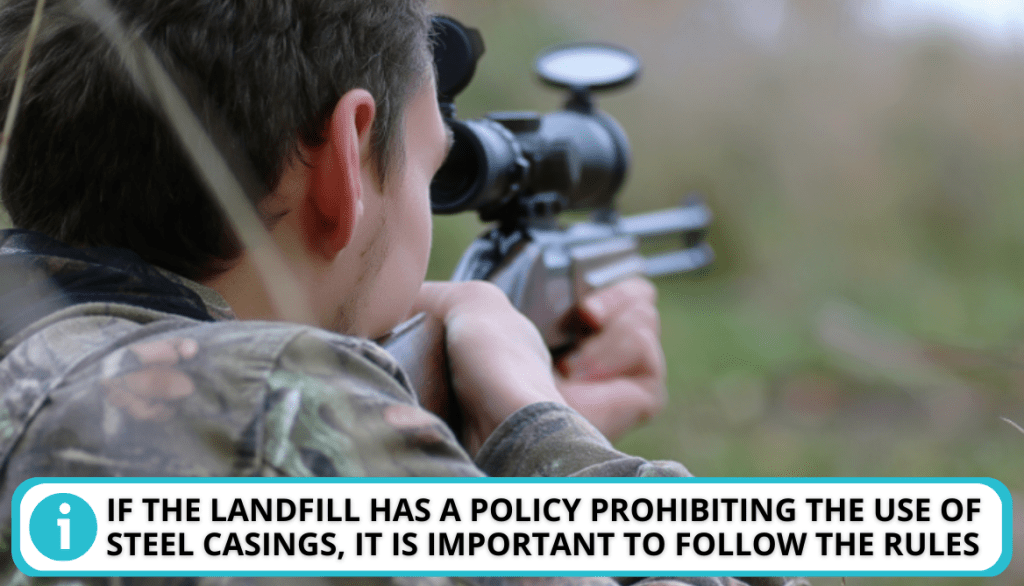
Why Can’t You Shoot Steel-Cased Ammo at a Range?
There are many reasons why the use of steel-cased ammo is restricted:
- Wear and tear: Steel-casings cause greater wear and tear on range components due to the harder metal composition of the casing.
- Safety: Some ranges may have concerns about the potential for ricochets or bullet fragmentation. When steel-cased ammo is used, it poses a safety hazard to other range users.
- Sparking: Steel-jacketed ammo also has the risk of sparking when it hits a hard surface, which has the potential if ignite the dusting of unburnt powder on the floors of indoor ranges.
- Reloadability: Steel cases cannot be reloaded due to the lack of elasticity that brass cases possess, which prevents them from being resized to hold another bullet.
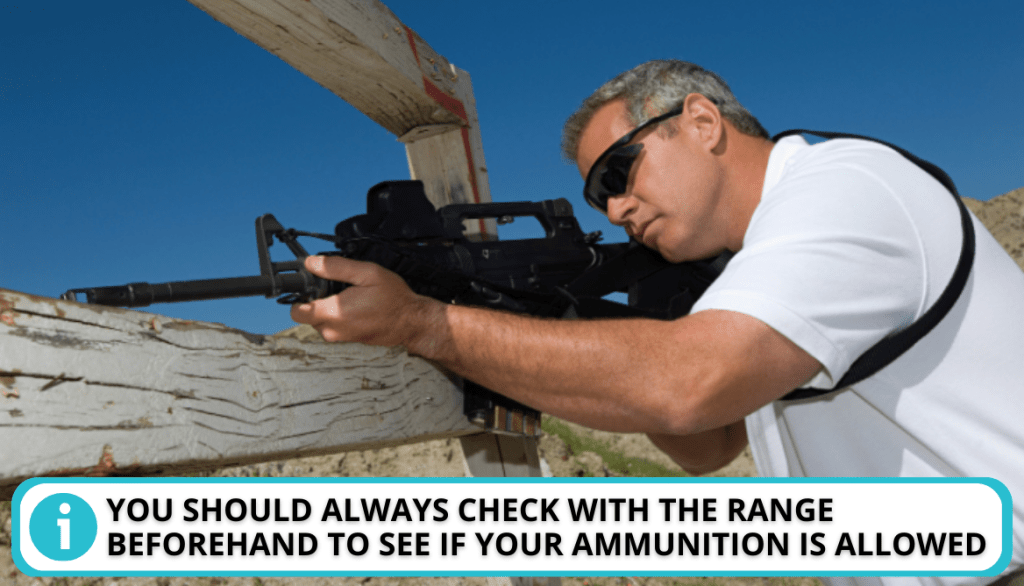
It is always a good idea to check with the range beforehand to ensure that your ammunition is allowed and to avoid any potential issues or safety concerns.
You can check it out here.
Outdoor Ranges: Range Rules
Rules for outdoor ranges may vary depending on the specific range, but some common rules and risks associated with outdoor shooting include:
- Handle all firearms as if they were loaded and refrain from touching the trigger until you are prepared to fire.
- Ensure that firearms are always directed towards the target and avoid firing at an angle that could result in bullets striking the ceiling, floor, or walls.
- While on the range, use ear and eye protection and keep your firearms pointed toward the target at all times.
- Store all of your equipment and gear on the benches in front of you and reveal all firearms and ammunition that you intend to use on the range.
- When you are done, throw all garbage in the assigned containers and sweep brass ahead of you.
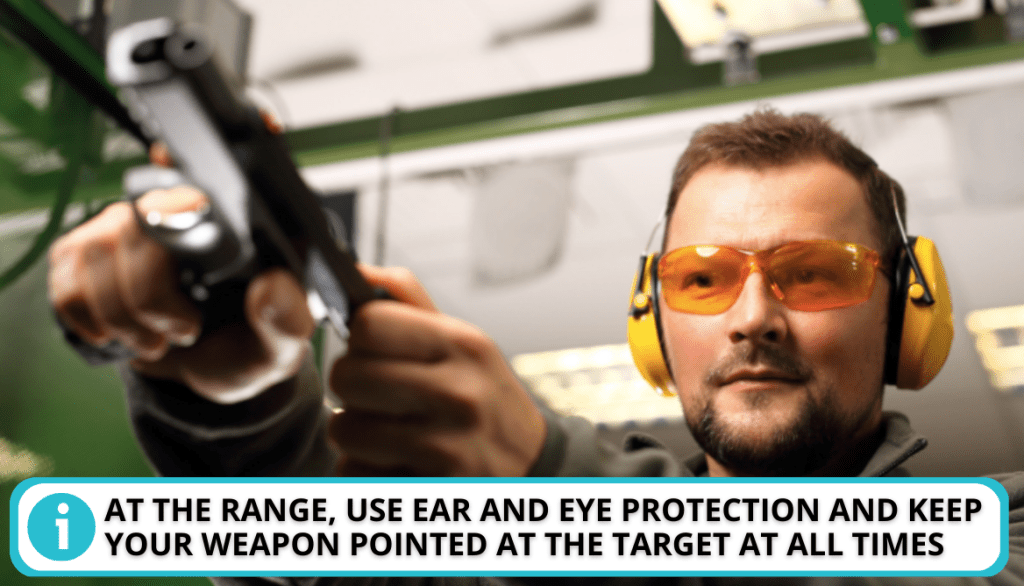
You can also check out the following gun basics and protocols.
Shooting Steel-Cased Ammo at the Range: The Consequences
Shooting steel-cased ammunition at the range can cause a range of problems, including safety hazards and range restrictions.
- These bullets consist of a copper jacket and a steel core, which can create sparks when striking a hard surface, leading to a fire hazard.
- Steel is a harder material than lead, and repeated use of steel-cased ammo can cause wear and tear on the barrel, potentially leading to accuracy issues or even failure.
Shooters should be aware of these concerns and follow all range rules and regulations to ensure a safe and enjoyable shooting experience.
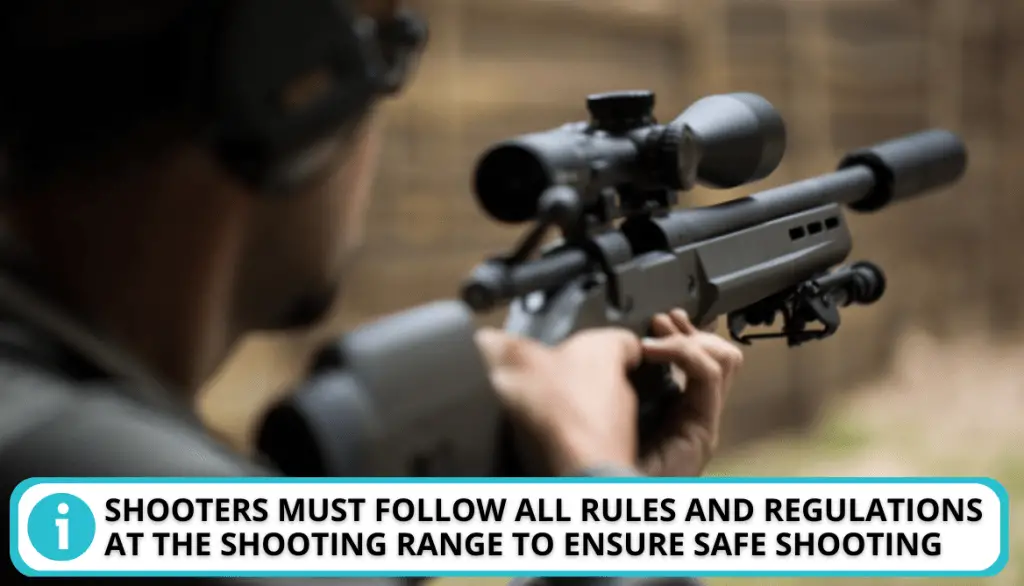
Steel Case Bullets Versus Steel Core Bullets
Bullets with steel cases are cartridges that have steel casings rather than the more traditional brass casings. while bullets with steel cores are cartridges that have a steel core surrounded by a copper or brass jacket.

Let’s list their pros and cons:
Steel cases
- Steel-cased bullets are surrounded by a steel casing which protects the bullet and provides stability during firing.
- Less expensive than brass ammo because steel is cheaper than brass.
- More readily available than other types of ammunition due to its lower cost and wider distribution.
- Coated with a layer of lacquer or polymer to protect against corrosion and prolong the shelf life of the ammunition.
- The steel-jacketed ammo is less likely to expand and stick in the chamber of a firearm compared to brass case ammunition
- Steel-cased bullets may not be as reliable as brass-cased bullets because the steel casing may expand more than brass during firing, causing jams or misfires.
Steel core ammo
- The steel core is designed to provide increased penetration and stopping power compared to bullets with lead cores.
- Steel core ammunition typically has consistent velocity and accuracy across a range of temperatures and conditions.
- Reduced recoil compared to other types of ammunition, making it easier to shoot and control.
- More durable than other types of ammunition.
- Steel-core bullets may pose a risk to bystanders or law enforcement officers.
- Steel core rounds pose a risk of environmental contamination.
- Increased wear and tear on steel targets which leads to increased damage to targets and equipment.
- Steel core ammunition is often more expensive than other types of ammunition.
- Some guns may have trouble cycling or may experience malfunctions when using steel-core ammo.
- Steel core rounds are not as widely available as other types of ammunition, making them more difficult to find and purchase.
Steel-Cased Ammo: Does it Damage Your Gun?
The use of steel-cased ammunition is a controversial topic among gun enthusiasts. some ranges prohibit steel-cased ammo while others maintain that it is perfectly safe to use.
- Steel-cased ammunition has the potential to cause damage to firearms due to the expansion and contraction of the steel casing during firing.
- They do not provide the same level of sealing as brass-cased ammunition, which can result in increased carbon buildup in the chamber.
- This ammunition causes more wear and tear on certain components. This causes the extractor to fail, leading to malfunctions or other issues with the gun.
- Steel casings are coated with a lacquer or polymer layer to protect against corrosion. This coating melts and becomes sticky during firing, leading to fouling.
- Some guns may not cycle properly with steel-cased ammunition due to differences in the size and shape of the casings.
It is worth noting that many shooters have used steel-cased ammunition without any significant issues or damage to their firearms. Some guns may function better with steel-cased ammunition compared to brass ammo due to the slightly different properties of the casings.
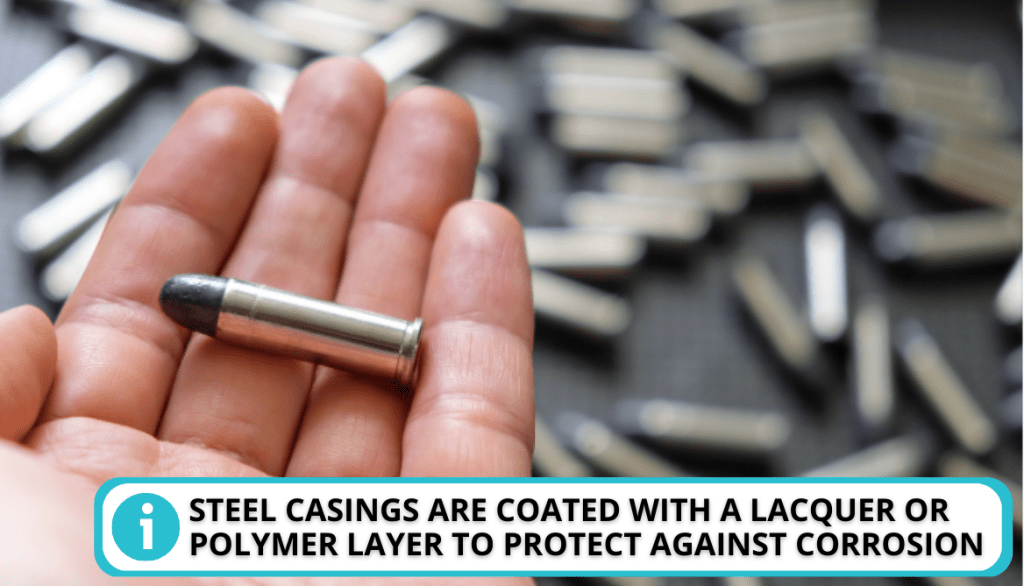
The Steel Core Rule
The “No Steel Core Rule” is an important regulation in many shooting ranges. While steel core rounds may be effective for certain purposes, the risks associated with their use make them unsuitable for use in many ranges.

Here are the primary reasons why steel core ammo are prohibited in ranges:
- Flame: When it hits a metal target, it can cause sparks, which can ignite debris or other flammable materials in the range.
- Damage: The target is exposed to significant damage, making it more difficult or expensive to repair or replace.
- The risk of ricochet: The steel core can cause the bullet to bounce off of hard surfaces at unpredictable angles, which can create a danger to other shooters or range personnel.
- Environmental concerns: Metal shavings and debris from the steel core accumulate on the range floor or in the soil, posing a risk of contamination to the environment.
FAQ
Why don’t ranges allow steel case ammo?
Steel-cased ammo can cause more wear and tear on range equipment. Solid Steel is a harder metal than brass, and as a result, steel-cased ammunition can cause more damage to the range’s equipment over time, such as backstops, target stands, and other range infrastructure.
What ammo can I not use a range?
You should avoid using any ammunition that has steel or armor-piercing components, as these can potentially damage range equipment and pose a safety hazard to other shooters.
Is steel-cased ammo bad for your gun?
Steel-cased ammunition can potentially cause differences in hardness between steel and brass casings, leading to issues such as misfires and increased carbon buildup in the chamber and barrel of the firearm.
Can ak47 shoot steel-cased ammo?
Yes, AK-47 rifles are generally able to shoot steel-cased ammunition without issue. Many AK-47 owners prefer to use steel-cased ammunition due to its lower cost compared to brass-cased ammunition.
What is the downside of steel casing?
The downside of steel casing is that it can potentially cause damage to firearms due to the difference in hardness between steel and brass shells, leading to issues such as failure to extract, jams, and misfires.
Conclusion
Understanding the reasons behind the prohibition of steel-cased ammunition at shooting ranges is vital for firearm enthusiasts and target shooters.
It is crucial to prioritize safety and adhere to range rules and regulations, including those related to steel-cased ammo, for a responsible and enjoyable shooting experience.
Do you have steel ammo? Have you encountered the issues stated above? Feel free to comment below and share the post
